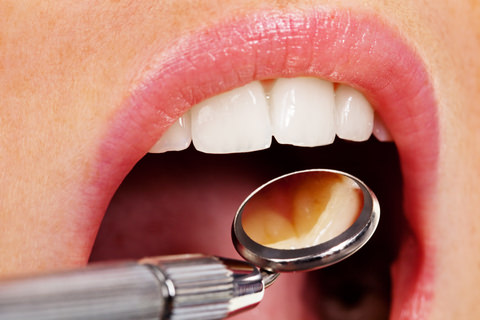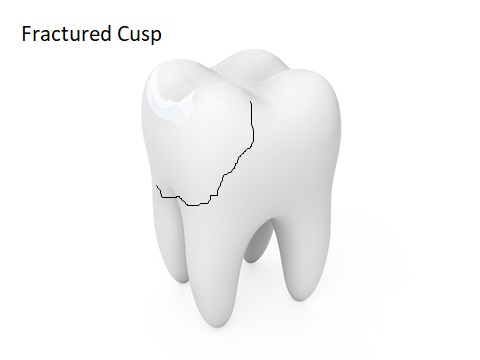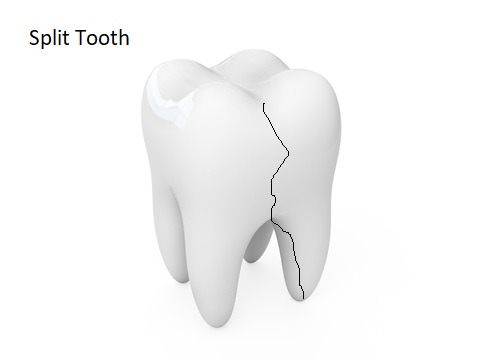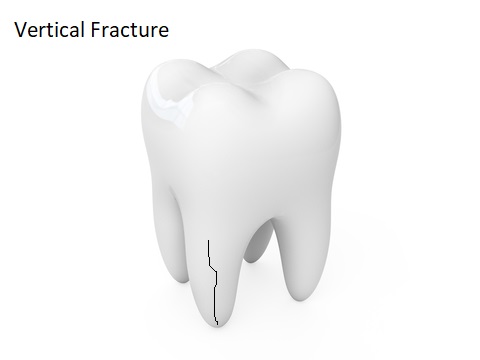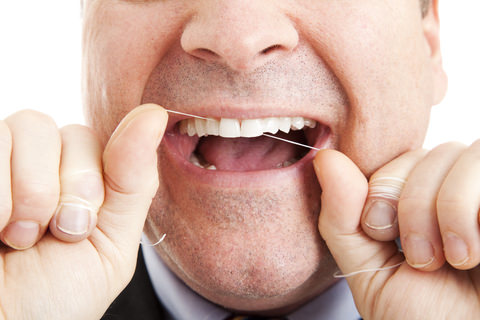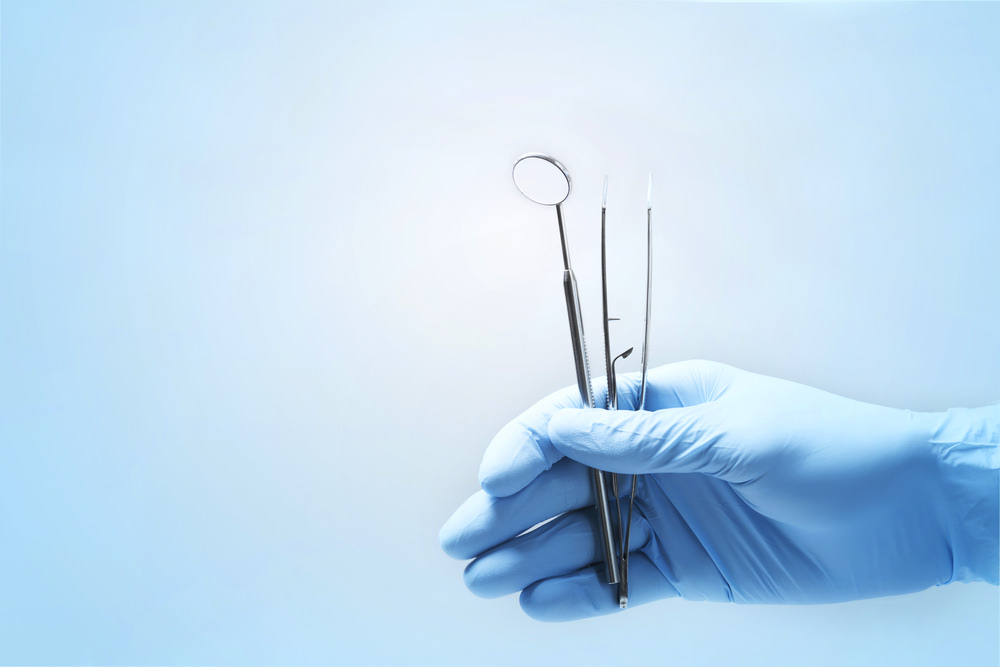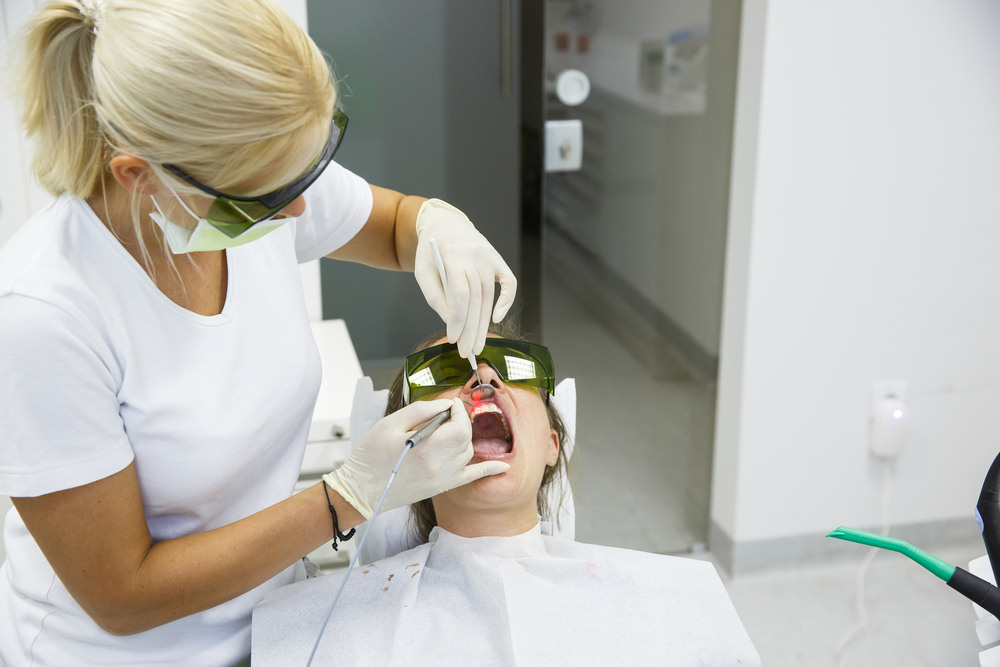What to Do When Your Tooth is Fractured?
A tooth fracture can be painful, and people suffering from one have to take precautions to reduce the damage and the pain.
So what should you do if your tooth is fractured?
You should see a dentist as soon as possible.
If the fracture is not treated asap, it can cause further problems such as permanent damage to the tooth.
Once you see your dentist there are a few ways to tackle this problem.
Dental remedies can range from simple fillings to tooth extractions and dental implants.
There is not just “one way” to deal with a fractured tooth, and every remedy is based on the severity of the fracture.
There’s a lot that goes behind fixing a fracture.
Let’s take a look!
What to do if Your Tooth Is Fractured?
A fractured tooth represents a severe oral injury and one that must be treated as soon as possible.
The implications can lead to diseases, excruciating pain, and in most cases, dentists take out time for an emergency.
However, there are cases where your dentist may be booked out or you are unable to visit the dentist.
In such a case where visiting the dentist is not possible, it is important to note that a fractured tooth is very sensitive to external objects such as food and drinks.
Even a gentle bite on the affected tooth can cause immense pain and suffering for the person.
Here are 5 tips to help you get by if you have fractured your tooth:
1. Eat Gently
In case you have a fractured tooth, it is advised to abstain from foods that require heavy munching or chewing.
The fractured tooth is prone to more pain and breakage under pressure.
Therefore, it is best to avoid applying such pressure to the tooth.
Eat soft foods as well as avoid biting down on the fractured tooth.
2. Warm Water
Warm water soothes the pain and relieves the affected area.
Rinsing your mouth with water should also ensure you spit out any blood that bleeds as a result of the fractured tooth.
For maximum relief, add a little bit of salt to the water and let it dissolve.
3. Wax
Fractured teeth often have a jagged, rough surface that is sharp enough to cause a cut.
To ensure that does not happen, apply a piece of wax paraffin or orthodontic wax to the affected tooth.
It will just smooth over the crack and give you time to get to your friendly dentist.
4. Use Gauze
In case of bleeding in the mouth due to a fractured tooth, apply gentle pressure to the affected area using gauze.
A gauze relieves the blood that is lost and soaks it up so that your mouth doesn’t come in contact with the blood.
5. Dental Cement
Dental cement is easily available in chemist stores and is excellent for covering up the teeth in case of a fractured tooth.
It is very useful in case your dental appointment is scheduled for later, and you need to protect the remaining tooth.
What are the Professional Remedies for a Fractured Tooth?
Dentists or endodontists (dentists that specialise in performing oral surgeries) determine the proper treatment for a fractured tooth.
This is done after examining the crack and analysing its severity and depth.
Some fractures can be dealt with swiftly, and it’s not long before you’re allowed to go home, while some fractures do require intensive surgeries.
There are other factors in play as well, such as tooth decay and infections that can occur because of fractures.
If the tooth is not yet infected, preventing further damage through a routine dental procedure is entirely feasible and the better option for your teeth.
There are different procedures for varying levels of fractures and cracks that occur.
Chipped Teeth
A slight chip at the surface level of the tooth rarely requires treatment.
These are minor fractures, generally considered to be the least severe chipped teeth.
In case of a chipped tooth, the dentist is most likely to go for filling material.
The filling material is used only if the slight chip shows signs of not getting worse.
To improve the aesthetic appearance of your smile, the dentist may follow the filling material with filing and polishing the tooth.
Craze Lines
Craze lines are also classified as minor fractures but impact a little bit deeper than a chipped tooth.
Craze lines directly impact the enamel – the protective layer on the teeth.
This also happens to be the strongest structure in a human’s body – and leaves a minor crack on it.
The enamel bears the damage and leaves the softer parts of the teeth intact, minimising the damage considerably.
The dentist may decide in the case of a craze line that no intensive treatment is required.
You might be allowed to leave after the dentist polishes and files down the affected tooth.
A Fractured Cusp
A fractured cusp occurs when a piece of the tooth’s chewing surface is broken off and is a common occurrence if you’ve had a filling done.
Despite that, fractured cusps are also considered minor fractures by dentists.
Unless a rare occurrence of a fractured cusp damages the pulp of the tooth.
Fractured cusps do not usually cause pain, which is why people often neglect a cusp.
It is naïve, as the cusp can deepen and cause damage to the inner structure of the tooth, including the dentin and pulp.
Cracked Tooth
A cracked tooth is a rare occurrence but has a much more severe and significant impact than a fractured cusp or craze lines.
In the case of a cracked tooth, an entire tooth is fractured.
From the topmost protective layer of enamel, down to the nerves that are inside the pulp of the tooth.
The crack gradually spreads in width, leading to excruciating pain.
The teeth do not break into pieces, but the crack expands over time if left untreated.
It’s imperative that you consult a dental hygiene expert at this stage.
Some cracks can be filled with special material, while some require more intense procedures.
Typically, a cracked tooth requires implantation of a dental crown to prevent the crack from worsening.
A severe crack in the tooth can expose nerves and causes immense pain and can also lead to bleeding.
In such a case, dentists resort to a root canal to remove the exposed nerve.
Split Tooth
A split tooth is what happens when a cracked tooth is left unchecked for long, and the crack expands to the extent that it splits the tooth into two.
A split tooth is a vertical break that splits the tooth into two separate parts.
Such complex surgeries are more likely to be performed by an endodontist.
The endodontist will perform a root canal to extract damaged nerves and cap them off with a crown.
Molar teeth, if split, present further problems for dentists.
Molars have multiple roots, and a root canal makes it possible to save all of the roots.
In such a case, the endodontists will remove the decayed roots and cover the remaining tooth with a dental crown implant.
There are cases when all of the roots have been damaged, and the endodontist is required to remove all the roots.
The teeth are removed and replaced with an implant if need be.
Vertical Root Fractures
Vertical root fractures, as the name implies, grow opposite to other fractures. These fractures originate from the root and move upwards.
The issue with vertical root fractures is that they often go unnoticed because they display minimum symptoms until the damage becomes severe.
The bone and gum surrounding the vertical root fracture are the first to get infected, and that is when the vertical root fracture is identified.
Extraction of the root is the most common remedy used by dentists and endodontists for a vertical root fracture.
However, some dentists also save the remaining, unaffected portion of the teeth by removing the affected part of the teeth through endodontic surgery.
How to Ease the Pain of a Fractured Tooth
A cracked or fractured tooth can cause excruciating pain and subject to availability of a dentist or dental hygiene expert; you might be required to endure that pain.
Some temporary remedies help suppress and numb the pain from a fractured tooth, providing temporary relief.
Using an Over-The-Counter (OTC) Pain Medication
Ibuprofen or Paracetamol are some examples of pain medications that are readily available that help suppresses the pain.
There might be other medicines that are prescribed to you before the tooth fracture.
Consult with your doctor or another health professional before taking these medicines to make sure they’re safe to consume.
Aspirin should be avoided when suffering from a fractured tooth as they make the blood thinner, which leads to slow blood clotting.
Blood clotting is essential if you are to undergo a root canal, as blood loss can increase due to thinner blood.
Floss Between the Fractured Teeth
Plaque and bacteria buildup can cause pain in the fractured teeth, as plaque attacks the sensitive and softer inner components of a tooth’s anatomy.
Food debris left over after meal consumption can lead to a growth in the bacteria buildup and cause the plaque to increase and induce more pain.
Flossing around the fractured teeth will get rid of the food debris and eventually reduce any possible plaque buildup.
Use Oil Of Cloves (Eugenol)
Oil of cloves has proven to have medical benefits and can be easily found in any of the natural health food stores.
As a natural anaesthetic that numbs the area it is applied on, oil of cloves has been used in the dental health industry for decades.
To apply the oil of cloves, soak a small piece of cotton in the oil.
Then blot the cotton on a piece of tissue to remove the excess oil on the cotton.
Hold the cotton on the fractured tooth for a good 10 seconds so that the oil reaches the nerves and making sure that the oil is not swallowed, very important!
Conclusion
Having a fractured tooth can present a very unpleasant situation.
Coupled with the possible pain and dental procedures required; it’s not something anybody looks toward to.
However, dental fractures can occur doing ordinary things at any time, all it takes is a hard bite and lousy luck.
Expert examination of the dental fracture should be done as soon as possible.
Procrastination can lead to the development of dental issues so if you think you have a tooth fracture, best see your dentist straight away.
Have you ever suffered a dental fracture? What remedy did you use for it?
By Dr. V
Created at October 31, 2018, Updated at January 25, 2025



